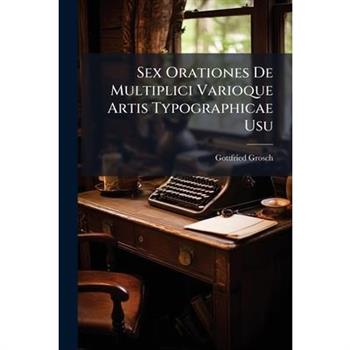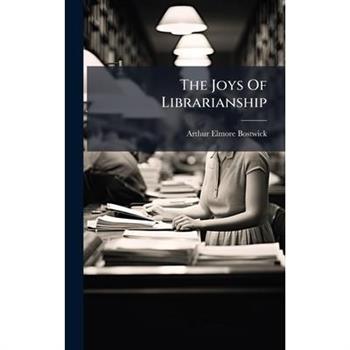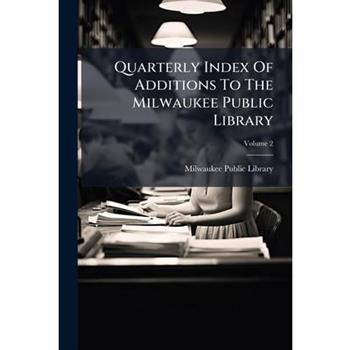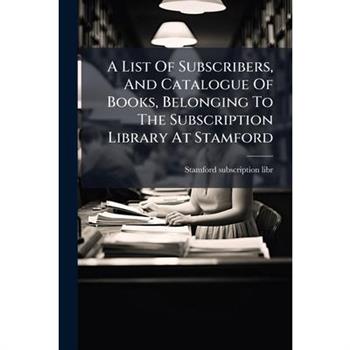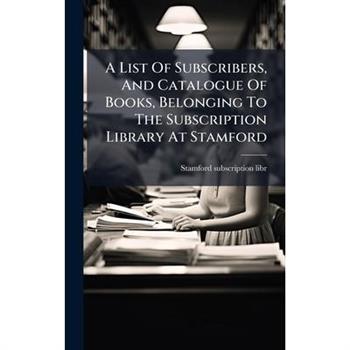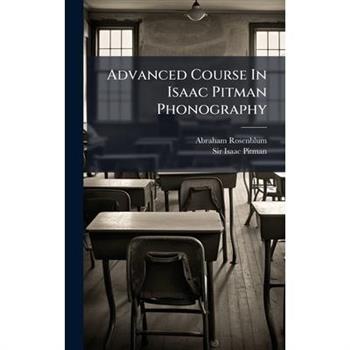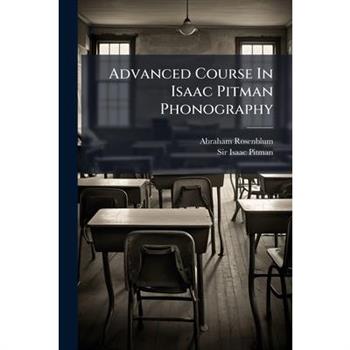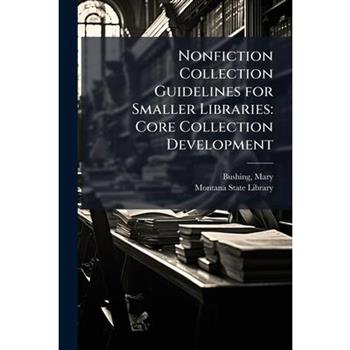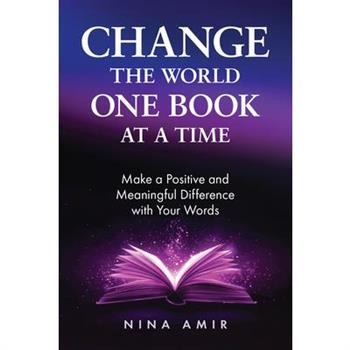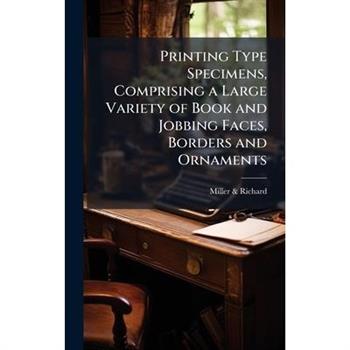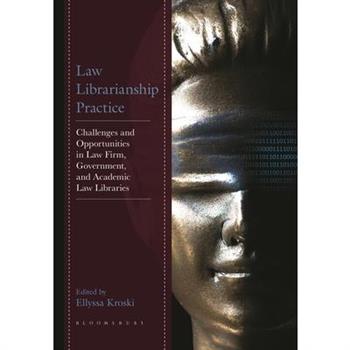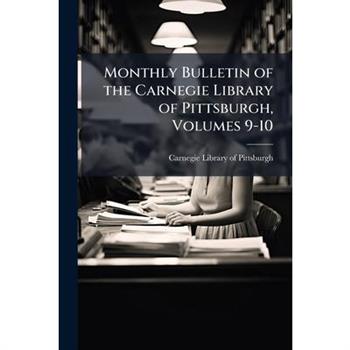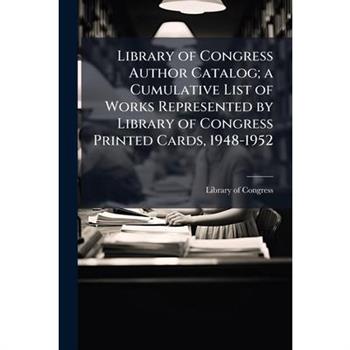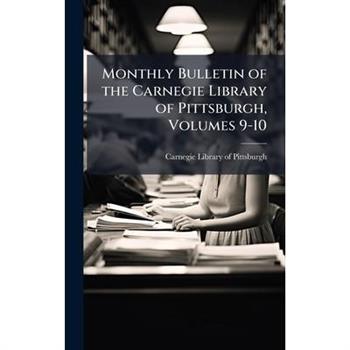A Library Worker's Guide to Saying No to White Supremacy Work Culture
A call to action to dismantle the white supremacy work culture in libraries, and create an environment where EDI is not only talked about but realized. Are the standards of professionalism that your organization has set still serving you? Or might libraries and library workers challenge our long-held beliefs about what our work culture is or should be? A Library Worker's Guide to Saying No to White Supremacy Work Culture interrogates the historical foundations and present day consequences of a library work culture that is rooted in white supremacy. These white supremacy work culture habits show up in every aspect of library service, from programming, policy development, hiring practices, strategic planning, and even our ways of communicating and engaging. Even as libraries and library workers have been intentional in introducing and developing practices that center equity, diversity, and inclusion, the quiet intersectionality of white supremacy work culture coupled with our professional standards of librarianship have informed our internal work practices, shaping our perspectives and perceptions around what it means to be a 'good librarian.' Library workers and libraries are already having authentic and challenging conversations about the impacts of equity, diversity, and inclusion on library services. However, these conversations are often external in nature, guided by a solidly patron-centric focus. This book challenges libraries and librarians to turn inward to examine the oppressive internal systems that libraries have developed, sustained, and promoted. Using Tema Okun's seminal research on white supremacy culture as inspiration A Library Worker's Guide to Saying No to White Supremacy Work Culture will reimagine the reader as an active participant in both discovering and addressing how the aspects of white supremacy culture inform our library work.
Unlocking Possibilities in the Library
This groundbreaking book explores the exciting realm of non-traditional programming in libraries, unlocking new possibilities for engagement, learning, and community building.Explore the evolving role of libraries as community hubs that go beyond traditional book lending and educational programs. This book highlights innovative and forward-thinking library programs that address emerging community needs, from digital literacy and re-entry services to mental health support and environmental sustainability initiatives. Drawing on real-world case studies, the book provides practical insights into how libraries can harness their unique resources to tackle the challenges faced by diverse and underserved populations.What sets Unlocking Possibilities in the Library: Programming for the Futureapart is its focus on the innovative and non-traditional library programs that are reshaping the way libraries interact with their communities. It emphasizes that libraries are not just places for books, but vibrant spaces for community engagement and empowerment. The book takes a deep dive into the lessons learned from libraries across the nation that have implemented groundbreaking programs, offering both successes and challenges, and actionable strategies that other libraries can adopt.In addition to program implementation, Unlocking Possibilities in the Librarydelves into the crucial aspects of building community partnerships, ensuring inclusivity, and addressing systemic inequities. By bridging the gap between traditional services and innovative outreach, this book showcases how libraries can act as catalysts for positive social change.With its comprehensive exploration of non-traditional programming and focus on community impact, Unlocking Possibilities in the Libraryoffers library professionals, administrators, and policymakers a resource for creating meaningful, forward-thinking programs that make libraries more relevant and accessible in today's diverse, rapidly evolving world.
Catalogue of the Important and Valuable Library of the Late George Offor
A detailed catalogue of the extensive and valuable library of the late George Offor, meticulously compiled for auction by Wilkinson & Hodge Sotheby in 1865. This catalogue offers a fascinating glimpse into the collecting habits and literary tastes of a prominent 19th-century bibliophile. Listing a wide range of books, from rare incunabula to contemporary publications, the catalogue serves as an important resource for book historians, collectors, and anyone interested in the history of the book trade. Explore the breadth and depth of Offor's collection, reflecting the intellectual and cultural landscape of his era. A valuable reference work for understanding the formation and dispersal of significant private libraries.This work has been selected by scholars as being culturally important, and is part of the knowledge base of civilization as we know it. This work was reproduced from the original artifact, and remains as true to the original work as possible. Therefore, you will see the original copyright references, library stamps (as most of these works have been housed in our most important libraries around the world), and other notations in the work.This work is in the public domain in the United States of America, and possibly other nations. Within the United States, you may freely copy and distribute this work, as no entity (individual or corporate) has a copyright on the body of the work.As a reproduction of a historical artifact, this work may contain missing or blurred pages, poor pictures, errant marks, etc. Scholars believe, and we concur, that this work is important enough to be preserved, reproduced, and made generally available to the public. We appreciate your support of the preservation process, and thank you for being an important part of keeping this knowledge alive and relevant.
Efficiency by Design
This book offers library and archive professionals a comprehensive guide to optimizing processes, with a focus on improving efficiency, speed, effectiveness, and reliability. Professionals in libraries and archives often are asked to take on decades old processes and are not provided the tools to rework those processes. This book gives readers practical insight into how they can analyze and re-design their work processes to be more efficient, faster, more effective, and more reliable. Readers will learn methods for getting more done while reducing stress and burnout. Librarians, archivists, and paraprofessionals who find themselves managing a process will find this book an excellent companion. By integrating process management techniques with the specific needs of libraries and archives, this book bridges the gap between theory and practice, providing actionable strategies to streamline workflows. Ultimately, Efficiency by Design contributes to making library and archive management more productive, sustainable, and mindful of the challenges professionals face today.
Literature and Translation in the Licensing Realm
This study examines how literature and its interlingual circulation changed under the conditions of international legal agreements. Until the 19th century, translation into other languages was dominated by the so-called target culture and took place independently of the source culture (freedom of translation). By contrast, modern authors can influence the international distribution of their works through copyright law. Not only has an extensive licensing system emerged - with agencies, publishers and scouts specializing in the interlingual dissemination of literature - the author's awareness of writing books for countries other than their own has also increased. The development of transnational authorship is traced through the history of German literature since the 19th century and the interaction of writers with translators, publishers and agencies.
Countervocalities
The Mediterranean island of Corsica, a French territory, experiences mobility in the form of locals' mass exodus to the Continent, the arrival of immigrants at rates similar to Paris, and a booming tourist industry with millions of visitors each year. What, then, are the multilingual dynamics on the island--languages emerging from above (French), a middle ground (Corsican), and sideways (languages of immigrants and tourists)? What multilingual subjectivities are articulated? Mendes analyzes competing conceptualizations of linguistic multiplicity, what he calls countervocalities, in which languages are constantly rearranging in variously imagined hierarchies.Countervocalities explores different dimensions of institutional multilingualism, namely those related to policies, practices, and ideologies within and extending from education settings. The chapters address reclamation, imposition, and erasure of different languages on Corsica, moving from inside the school, to artefacts from the schoolscape, to discourses about language teaching. The study fruitfully analyzes an array of interactional and artefactual data types. This productive alternation offers a cross-section of attitudes toward and representations of multilingual dynamics while foregrounding the role of mobility and language in understandings of place and what counts as local.
CoAuthorGPT
The #1 Prompt Resource for Authors Using AI Tools to Write, Edit, and Publish FasterAre you an author ready to unlock the full power of AI for writing, editing, publishing, and marketing your book? Whether you're a fiction writer, self-publisher, or creative entrepreneur, CoAuthorGPT is the ultimate AI prompt bible you've been waiting for.Packed with 476 expertly crafted prompts, this one-of-a-kind guide is your secret weapon to break through writer's block, boost productivity, and generate high-quality content faster than ever before.Write Better Books With Less EffortDevelop original plots, compelling characters, and immersive worldsUse AI to brainstorm chapters, twist endings, and dialogueStreamline your editing process with revision-focused promptsPublish Like a ProCreate book titles, subtitles, blurbs, and back cover copy that sellGenerate cover design ideas with AI visual toolsFormat your manuscript with confidenceMarket and Sell More BooksGenerate SEO-optimized keywords and book descriptionsWrite compelling Amazon listings, email campaigns, and social postsCreate author bios, press releases, and launch strategies-all with AI"This isn't just a book of prompts. It's the competitive edge every modern author needs."
Write a Must-Read
Now in paperback: the proven blueprint for writing a nonfiction book readers love, recommend, and remember You want to write a nonfiction book that matters. A book readers love and rave about. A book they underline, dog-ear, and highlight. A must-read. How do you do that, when you've never written a book like that before? When you aren't sure what content to include in a nonfiction book, or how to organize it? And when you're not sure if your idea is worth pursuing in the first place? At the heart of the answers to all these questions is a craft created by AJ Harper, ghostwriter and editor for some of the foremost thought leaders of our time. The foundation of that craft is a simple, yet powerful philosophy: Reader First. When you learn how to put your reader first at every stage of book development, writing, and editing, you can create the connection and trust required to transform their lives. In a new paperback format, Harper reveals the proven methods and frameworks she has used for nearly two decades to write and edit perennial bestsellers. It's not the easy way, or the fast way; it's the effective way. The payoff for doing this important work: a must-read book, and a massive readership who serve as ambassadors for your message and your brand.
CoAuthorGPT
The #1 Prompt Resource for Authors Using AI Tools to Write, Edit, and Publish FasterAre you an author ready to unlock the full power of AI for writing, editing, publishing, and marketing your book? Whether you're a fiction writer, self-publisher, or creative entrepreneur, CoAuthorGPT is the ultimate AI prompt bible you've been waiting for.Packed with 476 expertly crafted prompts, this one-of-a-kind guide is your secret weapon to break through writer's block, boost productivity, and generate high-quality content faster than ever before.Write Better Books With Less EffortDevelop original plots, compelling characters, and immersive worldsUse AI to brainstorm chapters, twist endings, and dialogueStreamline your editing process with revision-focused promptsPublish Like a ProCreate book titles, subtitles, blurbs, and back cover copy that sellGenerate cover design ideas with AI visual toolsFormat your manuscript with confidenceMarket and Sell More BooksGenerate SEO-optimized keywords and book descriptionsWrite compelling Amazon listings, email campaigns, and social postsCreate author bios, press releases, and launch strategies-all with AI"This isn't just a book of prompts. It's the competitive edge every modern author needs."
The Artisan Author
Less rush. More freedom. A way to love writing again. If modern indie publishing feels like a high-stress race to the bottom, the good news is there's another way.Most authors start writing for the love of it, but in recent years the reality of "writing for a living" has soured. Now, for a lot of us, it no longer looks fun - or creatively fulfilling - at all. You have to obey genres exactly or your books won't sell. If you step outside your lane and try something new, the kinds of readers most authors court will never buy it. And then there's the SPEED of it all: The rules of "Rapid Release" say you have to publish a book every month - at least - or you'll never survive. Forget about taking a vacation. Time off will let the algorithms forget you. Even successful authors often find themselves in "golden handcuffs" selling a lot of books, but only in a series they now have to write forever. And all that to earn around a dollar per book ... sold to readers who are far more loyal to Kindle Unlimited than to you. Where's the joy? Where's the delight that got you into storytelling in the first place? Remember when writing felt like a creative playground instead of a grind? What if, instead of succumbing to that grind, you could find a way to be creative and free ... without having to settle for poverty?In The Artisan Author, industry veteran Johnny B. Truant offers an alternative to Rapid Release: a new way to succeed as an author without sacrificing your freedom, worrying about competition or AI, or fearing you'll lose everything when the winds - or the algorithms - inevitably change.The way of the Artisan Author is the opposite of Rapid Release. Instead of rushing to churn out the same-old same-old, Artisans follow their muse and write whatever they want. Instead of stressing out, Artisans take their time, putting as much care and beauty into their work as they desire. It's a way to build a substantial, sustainable, bulletproof income based on Kevin Kelly's idea of "1000 True Fans" readers who are loyal to you, not any platform. True Fans are all you need to earn as much as you want as an author. They're people with whom you build genuine human connections ... and who therefore love you enough to spend far more than ordinary readers will ever spend.Johnny B. Truant has been a thought leader in the independent publishing community for over a decade, hosting the original Self Publishing Podcast, holding the Smarter Artist Summit conference, and co-authoring the industry bible Write. Publish. Repeat. In The Artisan Author, Johnny presents an art-first, quality-over-quantity alternative to Rapid Release for writers who thought sacrificing creative joy was the only way to succeed. It's not, though. It's wonderful over here on the artfully profitable side of writing. Join us, will you?
The Flashback Writer
Do your characters keep slipping into the past, even when the plot's begging them to stay in the present? Are you second-guessing every flashback, unsure if it's adding depth-or just dragging everything down? Yeah. Flashbacks are tricky. And the writing advice out there? Either too vague or too rigid to actually help.The Flashback Writer is your straight-talking guide to one of fiction's most misused tools. No jargon. No literary gatekeeping. Just clear answers to questions like: Should this scene be a flashback? How do I write it without destroying the pacing? Why does this backstory feel important but read like a filler episode?You'll learn how to spot the right moments to dive into the past-and how to come back stronger. Whether you're writing literary fiction, genre-bending fantasy, or a character-driven thriller, this book will help you use flashbacks with precision, power, and purpose.Because your story deserves more than a clunky info-dump and a "ten years earlier" title card.
How to Print
Dive into the world of 19th-century printing with "How to Print," a detailed catalog from J.W. Daughaday & Co. This book offers a comprehensive look at the celebrated Model Printing Press, showcasing samples of its work and various type specimens. It provides practical instructions in printing techniques, along with specific details about available outfits and a general price list of materials.This volume is an invaluable resource for historians, designers, and anyone fascinated by the evolution of printing technology. Discover the tools and methods that shaped early printing practices and gain insight into the craftsmanship of a bygone era. "How to Print" offers a unique glimpse into the intersection of technology, business, and the art of printing.This work has been selected by scholars as being culturally important, and is part of the knowledge base of civilization as we know it. This work was reproduced from the original artifact, and remains as true to the original work as possible. Therefore, you will see the original copyright references, library stamps (as most of these works have been housed in our most important libraries around the world), and other notations in the work.This work is in the public domain in the United States of America, and possibly other nations. Within the United States, you may freely copy and distribute this work, as no entity (individual or corporate) has a copyright on the body of the work.As a reproduction of a historical artifact, this work may contain missing or blurred pages, poor pictures, errant marks, etc. Scholars believe, and we concur, that this work is important enough to be preserved, reproduced, and made generally available to the public. We appreciate your support of the preservation process, and thank you for being an important part of keeping this knowledge alive and relevant.
Aleut Dialects of Atka and Attu
This is a print on demand edition of an important, hard-to-find publication. 30 plates, 26 maps.
Practical Project Management for Librarians
Librarians continue to work under budget constraints while still needing to increase the user experience and remove barriers to library resources. Learning to evaluate the best options for managing projects to accomplish goals while balancing with the reality of day-to-day work needs is integral to overall success. In this book, readers will learn: how to balance the goals of the project with the reality of working in libraries today, what key questions can help move readers effectively through the project process and choose the right tools, best practices to ensure sustainability in project plans as well as outcomes, and how to incorporate diversity, inclusion, and accessibility principles into your project management. This practice guide provides step-by-step instructions to determine what project management tools and techniques match the needs of the particular library project and person/team's skills level, while also providing these in the context of libraries' specific cultures and norms.
Preserving Useful Knowledge
This book traces the history of collections care at the American Philosophical Society (APS) as revealed through its minute books, treasurers' receipts, and librarians' correspondence. It also examines the physical evidence presented by books and documents that were repaired by former restorers and conservators, including Library of Congress manuscript restorer William Berwick, book and manuscript restorer Carol Rugh (later Caorlyn Horton), and the Society's first full-time conservator, Willman Spawn. Their painstaking repairs, which have not always aged well, present both a vital historical record and an ongoing challenge for today's conservators. Illus.
Beyond the Books
'Libraries are a community's secret weapon in the war against ignorance and isolation. They are also sites of pleasure and entertainment, and of rich cultural experience, knowledge transfer and social connection.'This exciting and courageous book dares to look beyond economic impact to examine how the State Library of South Australia is valued by individuals and the community. Significantly, it demonstrates the real value of our nation's libraries, museums, archives and galleries, and what we stand to lose when we don't look after them.This book reveals the vital role libraries and other cultural institutions play in our communities, promoting our civic 'common ground' and preserving our way of life. Bolstered by insights from across the Australian cultural sector, this book addresses what cultural value means to the public today - and what they see as the best return on government spending.
Art, Science, Invention
Charles Willson Peale was the owner of the nation's first successful natural history museum. The Peale-Sellers Family Collection, held at the Amer. Philosophical Soc. (APS) Library, is the world's largest archival collection related to the Peales. Two recent APS Museum exhibitions included selected items from the collection. The APS conservation staff ensured that the items were stable enough to display for months, and conservators repaired or stabilized books and manuscripts that needed treatment. This book examines the materials Peale and his family have left us, considers their preservation challenges, and discusses the evolution of conservation care for archival collections. It includes case studies of conservation treatment for six historic Peale-related artifacts. Illus.
The Past, Present, and Future of Libraries
In October 2018, the Amer, Philosophical Soc. (APS) gathered a group of scholars, library professionals, & thought leaders to discuss the past, present, & future of the library. This also marked the 275th ann'y. of the APS, founded by Benjamin Franklin & several friends. Topics include: The Female Mind & the Art of Reading across the Color Line; Academic Libraries Supporting Change in Amer. Higher Educ., 1860-1920; Building the Native Amer. Collection at Amherst College; Toward Authentic Accessibility in Digital Libraries; Changing Attitudes Toward Access to Special Collections; Preservation of Electronic Gov't. Info.; Speculation on the Future of Library Curation; The Collection Is the Network; Future Frontiers for Special Collections Libraries. Illus.
Mastering United States Government Information
The second edition of an award-winning text on government information for information professionals and those researching all branches of the US government. A comprehensive textbook for library school courses on US government information, the second edition of Mastering United States Government Information can also be relied upon as a training tool for those new to the government documents community. Written by Christopher C. Brown, coordinator of government documents at the University of Denver, this approachable book provides an introduction to all major areas of US government information. Including detailed information on all three branches of federal government as well as state and local government, this wide-ranging resource teaches readers to use census data, understand the regulatory process, cite government data, work with mapping and geographic information systems, and navigate intellectual property. Important updates to the second edition include a robust look at Data.census.gov, further elaboration on bill tracking, and enhanced instructional tools for dealing with documents that will never change and the ever-changing discovery tools and web portals that have transformed access to these documents. Examples throughout the text help users understand real-life information challenges, while exercises at the end of chapters help them become comfortable answering government information questions on their own. Several appendixes serve as quick reference sources. Students and practitioners will appreciate Brown's clear writing style and the breadth of information in this valuable resource.
Librarians as Researchers
This book is designed to empower librarians to develop their research skills and embrace their identities as scholars. Many librarians, particularly those in academic libraries, are expected to engage in research and scholarly output. However, unlike disciplinary faculty, most librarians have not completed a PhD program, and many have never designed or participated in original research upon embarking on their career. This edited volume provides inspiration and support for academic librarians looking to develop or refresh their research skills and develop their scholarly identities. The focus of this book is toward empowering librarians as researchers, rather than librarians supporting student or faculty research. This book provides a venue for librarians to share their knowledge on different aspects of research as well as build community for other librarians to actualize their own identities as researchers. The existing literature and research in the realm of librarian identity development often touches on librarian identities in the face of emerging technologies and new library types, or how librarians can support research at their institutions. However, there is a gap in the literature around librarians developing their own identities as researchers. Librarians have a unique role in the scholarly community; we often sacrifice our own research interests so that we can provide support and instruction to others, whether it be faculty, students, or the public. But the library world holds immense opportunity for developing and executing original research. Additionally, conducting research is beneficial to librarians' individual practice as well as the library community as a whole. This edited volume will provide guidance as well as actionable methods for librarians to develop foundational research philosophies, create communities of practice, and hone practical skills in a wide range of research areas.
A Specimen Of Printing Types, And Ornaments
"A Specimen Of Printing Types, And Ornaments, Cast In The Letter-foundry Of G.b" showcases a wide array of fonts and decorative elements produced by the George Bruce & Co. letter foundry. This volume provides a detailed look at the styles and designs available during the 19th century, offering valuable insight into the world of printing and typography of the era.The book serves as an essential resource for historians, designers, and anyone interested in the evolution of printing techniques and aesthetic trends. It highlights the craftsmanship and artistry involved in creating metal type, making it a fascinating glimpse into a pivotal period in graphic communication.This work has been selected by scholars as being culturally important, and is part of the knowledge base of civilization as we know it. This work was reproduced from the original artifact, and remains as true to the original work as possible. Therefore, you will see the original copyright references, library stamps (as most of these works have been housed in our most important libraries around the world), and other notations in the work.This work is in the public domain in the United States of America, and possibly other nations. Within the United States, you may freely copy and distribute this work, as no entity (individual or corporate) has a copyright on the body of the work.As a reproduction of a historical artifact, this work may contain missing or blurred pages, poor pictures, errant marks, etc. Scholars believe, and we concur, that this work is important enough to be preserved, reproduced, and made generally available to the public. We appreciate your support of the preservation process, and thank you for being an important part of keeping this knowledge alive and relevant.
Special Collections Of Local Books In Provincial Libraries, A Paper
This paper, "Special Collections Of Local Books In Provincial Libraries," explores the significance and management of locally-focused book collections within libraries. Examining the unique challenges and opportunities associated with preserving and providing access to these specialized resources, the author emphasizes the importance of recognizing and supporting local publishing and literary heritage. A valuable resource for librarians and researchers interested in collection development and local history.This work has been selected by scholars as being culturally important, and is part of the knowledge base of civilization as we know it. This work was reproduced from the original artifact, and remains as true to the original work as possible. Therefore, you will see the original copyright references, library stamps (as most of these works have been housed in our most important libraries around the world), and other notations in the work.This work is in the public domain in the United States of America, and possibly other nations. Within the United States, you may freely copy and distribute this work, as no entity (individual or corporate) has a copyright on the body of the work.As a reproduction of a historical artifact, this work may contain missing or blurred pages, poor pictures, errant marks, etc. Scholars believe, and we concur, that this work is important enough to be preserved, reproduced, and made generally available to the public. We appreciate your support of the preservation process, and thank you for being an important part of keeping this knowledge alive and relevant.
Beiheft Zum Zentralblatt F?1/4r Bibliothekswesen, Volume 12, Issues 34-36
This volume comprises issues 34-36 of Beiheft Zum Zentralblatt F?1/4r Bibliothekswesen, Volume 12, a historical supplement to the Central Library Journal. Authored by Otto Hartwig, this collection offers valuable insights into library science, historical bibliography, and related subjects. A useful resource for library historians and researchers.This work has been selected by scholars as being culturally important, and is part of the knowledge base of civilization as we know it. This work was reproduced from the original artifact, and remains as true to the original work as possible. Therefore, you will see the original copyright references, library stamps (as most of these works have been housed in our most important libraries around the world), and other notations in the work.This work is in the public domain in the United States of America, and possibly other nations. Within the United States, you may freely copy and distribute this work, as no entity (individual or corporate) has a copyright on the body of the work.As a reproduction of a historical artifact, this work may contain missing or blurred pages, poor pictures, errant marks, etc. Scholars believe, and we concur, that this work is important enough to be preserved, reproduced, and made generally available to the public. We appreciate your support of the preservation process, and thank you for being an important part of keeping this knowledge alive and relevant.
Beiheft Zum Zentralblatt F?1/4r Bibliothekswesen, Volume 12, Issues 34-36
This volume comprises issues 34-36 of Beiheft Zum Zentralblatt F?1/4r Bibliothekswesen, Volume 12, a historical supplement to the Central Library Journal. Authored by Otto Hartwig, this collection offers valuable insights into library science, historical bibliography, and related subjects. A useful resource for library historians and researchers.This work has been selected by scholars as being culturally important, and is part of the knowledge base of civilization as we know it. This work was reproduced from the original artifact, and remains as true to the original work as possible. Therefore, you will see the original copyright references, library stamps (as most of these works have been housed in our most important libraries around the world), and other notations in the work.This work is in the public domain in the United States of America, and possibly other nations. Within the United States, you may freely copy and distribute this work, as no entity (individual or corporate) has a copyright on the body of the work.As a reproduction of a historical artifact, this work may contain missing or blurred pages, poor pictures, errant marks, etc. Scholars believe, and we concur, that this work is important enough to be preserved, reproduced, and made generally available to the public. We appreciate your support of the preservation process, and thank you for being an important part of keeping this knowledge alive and relevant.
Quarterly Index Of Additions To The Milwaukee Public Library
"Quarterly Index Of Additions To The Milwaukee Public Library, Volume 2" offers a valuable historical record of the library's acquisitions. This volume provides a detailed list of materials added to the Milwaukee Public Library's collection during a specific quarter, offering insight into the intellectual and cultural interests of the community it served. It is a key resource for researchers, historians, and anyone interested in the evolution of library collections and the history of reading in Milwaukee. This index serves as a snapshot of the library's holdings at a particular moment in time, reflecting trends in publishing, scholarship, and public interest. It is an essential tool for understanding the library's role in shaping the intellectual landscape of its community.This work has been selected by scholars as being culturally important, and is part of the knowledge base of civilization as we know it. This work was reproduced from the original artifact, and remains as true to the original work as possible. Therefore, you will see the original copyright references, library stamps (as most of these works have been housed in our most important libraries around the world), and other notations in the work.This work is in the public domain in the United States of America, and possibly other nations. Within the United States, you may freely copy and distribute this work, as no entity (individual or corporate) has a copyright on the body of the work.As a reproduction of a historical artifact, this work may contain missing or blurred pages, poor pictures, errant marks, etc. Scholars believe, and we concur, that this work is important enough to be preserved, reproduced, and made generally available to the public. We appreciate your support of the preservation process, and thank you for being an important part of keeping this knowledge alive and relevant.
The Fundamentals of Argumentation and Debate
The Fundamentals of Argumentation and Debate, by Jacob Walter Reeves, offers a comprehensive guide to the principles and practices of effective argumentation and debate. Originally published in 1920, this book provides timeless insights into constructing sound arguments, engaging in persuasive rhetoric, and mastering the art of public speaking. Reeves explores the essential elements of argumentation, including the structure of arguments, methods of reasoning, and techniques for analyzing and refuting opposing viewpoints. The book also covers the fundamentals of debate, offering practical guidance on preparing for debates, presenting arguments clearly and persuasively, and responding effectively to challenges. This book is an invaluable resource for students, educators, and anyone seeking to enhance their communication skills and master the art of reasoned discourse. Whether you are preparing for a formal debate or simply seeking to improve your ability to articulate your ideas effectively, The Fundamentals of Argumentation and Debate provides the tools and knowledge you need to succeed.This work has been selected by scholars as being culturally important, and is part of the knowledge base of civilization as we know it. This work was reproduced from the original artifact, and remains as true to the original work as possible. Therefore, you will see the original copyright references, library stamps (as most of these works have been housed in our most important libraries around the world), and other notations in the work.This work is in the public domain in the United States of America, and possibly other nations. Within the United States, you may freely copy and distribute this work, as no entity (individual or corporate) has a copyright on the body of the work.As a reproduction of a historical artifact, this work may contain missing or blurred pages, poor pictures, errant marks, etc. Scholars believe, and we concur, that this work is important enough to be preserved, reproduced, and made generally available to the public. We appreciate your support of the preservation process, and thank you for being an important part of keeping this knowledge alive and relevant.
Special Collections Of Local Books In Provincial Libraries, A Paper
This paper, "Special Collections Of Local Books In Provincial Libraries," explores the significance and management of locally-focused book collections within libraries. Examining the unique challenges and opportunities associated with preserving and providing access to these specialized resources, the author emphasizes the importance of recognizing and supporting local publishing and literary heritage. A valuable resource for librarians and researchers interested in collection development and local history.This work has been selected by scholars as being culturally important, and is part of the knowledge base of civilization as we know it. This work was reproduced from the original artifact, and remains as true to the original work as possible. Therefore, you will see the original copyright references, library stamps (as most of these works have been housed in our most important libraries around the world), and other notations in the work.This work is in the public domain in the United States of America, and possibly other nations. Within the United States, you may freely copy and distribute this work, as no entity (individual or corporate) has a copyright on the body of the work.As a reproduction of a historical artifact, this work may contain missing or blurred pages, poor pictures, errant marks, etc. Scholars believe, and we concur, that this work is important enough to be preserved, reproduced, and made generally available to the public. We appreciate your support of the preservation process, and thank you for being an important part of keeping this knowledge alive and relevant.
A Specimen Of Printing Types, And Ornaments
"A Specimen Of Printing Types, And Ornaments, Cast In The Letter-foundry Of G.b" showcases a wide array of fonts and decorative elements produced by the George Bruce & Co. letter foundry. This volume provides a detailed look at the styles and designs available during the 19th century, offering valuable insight into the world of printing and typography of the era.The book serves as an essential resource for historians, designers, and anyone interested in the evolution of printing techniques and aesthetic trends. It highlights the craftsmanship and artistry involved in creating metal type, making it a fascinating glimpse into a pivotal period in graphic communication.This work has been selected by scholars as being culturally important, and is part of the knowledge base of civilization as we know it. This work was reproduced from the original artifact, and remains as true to the original work as possible. Therefore, you will see the original copyright references, library stamps (as most of these works have been housed in our most important libraries around the world), and other notations in the work.This work is in the public domain in the United States of America, and possibly other nations. Within the United States, you may freely copy and distribute this work, as no entity (individual or corporate) has a copyright on the body of the work.As a reproduction of a historical artifact, this work may contain missing or blurred pages, poor pictures, errant marks, etc. Scholars believe, and we concur, that this work is important enough to be preserved, reproduced, and made generally available to the public. We appreciate your support of the preservation process, and thank you for being an important part of keeping this knowledge alive and relevant.
Literature and Translation in the Licensing Realm
Following the historical analysis that focused on the actors and the institutions of book culture in the first volume, volume two discusses writing strategies in the global licensing realm, as well as revealing the form, character, and structure of multilateral literature. Globalized texts address audiences of different languages and cultures. Using German literature from the 19th century to the present, six literary techniques that engage transnational audiences are analyzed: the internationalization of textual reference, the pluralization and decentering of space, the staging of mediation, the effects of multilingualism, transnational issues, and the global novel.
Sex Orationes De Multiplici Varioque Artis Typographicae Usu
"Sex Orationes De Multiplici Varioque Artis Typographicae Usu" commemorates the tercentenary jubilee of printing, celebrated by young scholars at the Goslar Lyceum on July 12, 1740. Penned by Gottfried Grosch, these six orations explore the diverse and multifaceted applications of the typographic art. This work offers a glimpse into the 18th-century appreciation for printing and its significance in disseminating knowledge. It provides valuable insights into the historical context of typography and the intellectual pursuits of young scholars during this period.This work has been selected by scholars as being culturally important, and is part of the knowledge base of civilization as we know it. This work was reproduced from the original artifact, and remains as true to the original work as possible. Therefore, you will see the original copyright references, library stamps (as most of these works have been housed in our most important libraries around the world), and other notations in the work.This work is in the public domain in the United States of America, and possibly other nations. Within the United States, you may freely copy and distribute this work, as no entity (individual or corporate) has a copyright on the body of the work.As a reproduction of a historical artifact, this work may contain missing or blurred pages, poor pictures, errant marks, etc. Scholars believe, and we concur, that this work is important enough to be preserved, reproduced, and made generally available to the public. We appreciate your support of the preservation process, and thank you for being an important part of keeping this knowledge alive and relevant.
The Free Libraries Of Scotland, By An Assistant Librarian [t. Mason]
"The Free Libraries Of Scotland, By An Assistant Librarian" offers a detailed look into the burgeoning public library system of 19th-century Scotland. Written by Thomas Mason, this work provides valuable insights into the establishment, operation, and impact of free libraries on Scottish communities. Mason's account captures the spirit of social reform and the growing recognition of the importance of accessible education and reading materials for all. This book serves as a crucial historical document for understanding the evolution of library science and the cultural landscape of Scotland.This work has been selected by scholars as being culturally important, and is part of the knowledge base of civilization as we know it. This work was reproduced from the original artifact, and remains as true to the original work as possible. Therefore, you will see the original copyright references, library stamps (as most of these works have been housed in our most important libraries around the world), and other notations in the work.This work is in the public domain in the United States of America, and possibly other nations. Within the United States, you may freely copy and distribute this work, as no entity (individual or corporate) has a copyright on the body of the work.As a reproduction of a historical artifact, this work may contain missing or blurred pages, poor pictures, errant marks, etc. Scholars believe, and we concur, that this work is important enough to be preserved, reproduced, and made generally available to the public. We appreciate your support of the preservation process, and thank you for being an important part of keeping this knowledge alive and relevant.
The Free Libraries Of Scotland, By An Assistant Librarian [t. Mason]
"The Free Libraries Of Scotland, By An Assistant Librarian" offers a detailed look into the burgeoning public library system of 19th-century Scotland. Written by Thomas Mason, this work provides valuable insights into the establishment, operation, and impact of free libraries on Scottish communities. Mason's account captures the spirit of social reform and the growing recognition of the importance of accessible education and reading materials for all. This book serves as a crucial historical document for understanding the evolution of library science and the cultural landscape of Scotland.This work has been selected by scholars as being culturally important, and is part of the knowledge base of civilization as we know it. This work was reproduced from the original artifact, and remains as true to the original work as possible. Therefore, you will see the original copyright references, library stamps (as most of these works have been housed in our most important libraries around the world), and other notations in the work.This work is in the public domain in the United States of America, and possibly other nations. Within the United States, you may freely copy and distribute this work, as no entity (individual or corporate) has a copyright on the body of the work.As a reproduction of a historical artifact, this work may contain missing or blurred pages, poor pictures, errant marks, etc. Scholars believe, and we concur, that this work is important enough to be preserved, reproduced, and made generally available to the public. We appreciate your support of the preservation process, and thank you for being an important part of keeping this knowledge alive and relevant.
Sex Orationes De Multiplici Varioque Artis Typographicae Usu
"Sex Orationes De Multiplici Varioque Artis Typographicae Usu" commemorates the tercentenary jubilee of printing, celebrated by young scholars at the Goslar Lyceum on July 12, 1740. Penned by Gottfried Grosch, these six orations explore the diverse and multifaceted applications of the typographic art. This work offers a glimpse into the 18th-century appreciation for printing and its significance in disseminating knowledge. It provides valuable insights into the historical context of typography and the intellectual pursuits of young scholars during this period.This work has been selected by scholars as being culturally important, and is part of the knowledge base of civilization as we know it. This work was reproduced from the original artifact, and remains as true to the original work as possible. Therefore, you will see the original copyright references, library stamps (as most of these works have been housed in our most important libraries around the world), and other notations in the work.This work is in the public domain in the United States of America, and possibly other nations. Within the United States, you may freely copy and distribute this work, as no entity (individual or corporate) has a copyright on the body of the work.As a reproduction of a historical artifact, this work may contain missing or blurred pages, poor pictures, errant marks, etc. Scholars believe, and we concur, that this work is important enough to be preserved, reproduced, and made generally available to the public. We appreciate your support of the preservation process, and thank you for being an important part of keeping this knowledge alive and relevant.
The Joys Of Librarianship
"The Joys of Librarianship" explores the multifaceted world of libraries and the rewarding experiences of those who dedicate their careers to them. Arthur Elmore Bostwick, a prominent librarian and scholar, delves into the historical significance of libraries, the evolving role of librarians, and the intellectual and social contributions they make to communities. This insightful work celebrates the librarian's vital role in preserving knowledge, fostering literacy, and providing access to information for all. Bostwick examines the daily tasks, challenges, and unique satisfactions inherent in the profession, painting a vivid picture of librarianship as both a vocation and a calling. This book offers valuable perspectives for aspiring and current librarians, highlighting the enduring importance of libraries in an increasingly digital age.This work has been selected by scholars as being culturally important, and is part of the knowledge base of civilization as we know it. This work was reproduced from the original artifact, and remains as true to the original work as possible. Therefore, you will see the original copyright references, library stamps (as most of these works have been housed in our most important libraries around the world), and other notations in the work.This work is in the public domain in the United States of America, and possibly other nations. Within the United States, you may freely copy and distribute this work, as no entity (individual or corporate) has a copyright on the body of the work.As a reproduction of a historical artifact, this work may contain missing or blurred pages, poor pictures, errant marks, etc. Scholars believe, and we concur, that this work is important enough to be preserved, reproduced, and made generally available to the public. We appreciate your support of the preservation process, and thank you for being an important part of keeping this knowledge alive and relevant.
Quarterly Index Of Additions To The Milwaukee Public Library
"Quarterly Index Of Additions To The Milwaukee Public Library, Volume 2" offers a valuable historical record of the library's acquisitions. This volume provides a detailed list of materials added to the Milwaukee Public Library's collection during a specific quarter, offering insight into the intellectual and cultural interests of the community it served. It is a key resource for researchers, historians, and anyone interested in the evolution of library collections and the history of reading in Milwaukee. This index serves as a snapshot of the library's holdings at a particular moment in time, reflecting trends in publishing, scholarship, and public interest. It is an essential tool for understanding the library's role in shaping the intellectual landscape of its community.This work has been selected by scholars as being culturally important, and is part of the knowledge base of civilization as we know it. This work was reproduced from the original artifact, and remains as true to the original work as possible. Therefore, you will see the original copyright references, library stamps (as most of these works have been housed in our most important libraries around the world), and other notations in the work.This work is in the public domain in the United States of America, and possibly other nations. Within the United States, you may freely copy and distribute this work, as no entity (individual or corporate) has a copyright on the body of the work.As a reproduction of a historical artifact, this work may contain missing or blurred pages, poor pictures, errant marks, etc. Scholars believe, and we concur, that this work is important enough to be preserved, reproduced, and made generally available to the public. We appreciate your support of the preservation process, and thank you for being an important part of keeping this knowledge alive and relevant.
A List Of Subscribers, And Catalogue Of Books, Belonging To The Subscription Library At Stamford
This volume offers a glimpse into the literary tastes and reading habits of 18th-century Stamford through a detailed "List Of Subscribers, And Catalogue Of Books, Belonging To The Subscription Library At Stamford." It provides a valuable record of the library's holdings, reflecting the intellectual and cultural interests of its members. For researchers of library history, social history, and book collecting, this catalogue offers primary source material that sheds light on the dissemination of knowledge and the role of libraries in shaping communities during this period.This work has been selected by scholars as being culturally important, and is part of the knowledge base of civilization as we know it. This work was reproduced from the original artifact, and remains as true to the original work as possible. Therefore, you will see the original copyright references, library stamps (as most of these works have been housed in our most important libraries around the world), and other notations in the work.This work is in the public domain in the United States of America, and possibly other nations. Within the United States, you may freely copy and distribute this work, as no entity (individual or corporate) has a copyright on the body of the work.As a reproduction of a historical artifact, this work may contain missing or blurred pages, poor pictures, errant marks, etc. Scholars believe, and we concur, that this work is important enough to be preserved, reproduced, and made generally available to the public. We appreciate your support of the preservation process, and thank you for being an important part of keeping this knowledge alive and relevant.
A List Of Subscribers, And Catalogue Of Books, Belonging To The Subscription Library At Stamford
This volume offers a glimpse into the literary tastes and reading habits of 18th-century Stamford through a detailed "List Of Subscribers, And Catalogue Of Books, Belonging To The Subscription Library At Stamford." It provides a valuable record of the library's holdings, reflecting the intellectual and cultural interests of its members. For researchers of library history, social history, and book collecting, this catalogue offers primary source material that sheds light on the dissemination of knowledge and the role of libraries in shaping communities during this period.This work has been selected by scholars as being culturally important, and is part of the knowledge base of civilization as we know it. This work was reproduced from the original artifact, and remains as true to the original work as possible. Therefore, you will see the original copyright references, library stamps (as most of these works have been housed in our most important libraries around the world), and other notations in the work.This work is in the public domain in the United States of America, and possibly other nations. Within the United States, you may freely copy and distribute this work, as no entity (individual or corporate) has a copyright on the body of the work.As a reproduction of a historical artifact, this work may contain missing or blurred pages, poor pictures, errant marks, etc. Scholars believe, and we concur, that this work is important enough to be preserved, reproduced, and made generally available to the public. We appreciate your support of the preservation process, and thank you for being an important part of keeping this knowledge alive and relevant.
Advanced Course In Isaac Pitman Phonography
"Advanced Course In Isaac Pitman Phonography" is a comprehensive guide to mastering the Pitman shorthand system, a method of rapid writing widely used in secretarial and professional settings. Authored by Abraham Rosenblum and Sir Isaac Pitman, this book delves into the intricacies of phonography, offering detailed lessons and exercises designed to enhance speed and accuracy. This advanced course is ideal for students and professionals seeking to improve their note-taking abilities and streamline their writing processes. The book's structured approach and practical examples make it an invaluable resource for anyone looking to achieve proficiency in Pitman shorthand, a skill that remains relevant in various fields.This work has been selected by scholars as being culturally important, and is part of the knowledge base of civilization as we know it. This work was reproduced from the original artifact, and remains as true to the original work as possible. Therefore, you will see the original copyright references, library stamps (as most of these works have been housed in our most important libraries around the world), and other notations in the work.This work is in the public domain in the United States of America, and possibly other nations. Within the United States, you may freely copy and distribute this work, as no entity (individual or corporate) has a copyright on the body of the work.As a reproduction of a historical artifact, this work may contain missing or blurred pages, poor pictures, errant marks, etc. Scholars believe, and we concur, that this work is important enough to be preserved, reproduced, and made generally available to the public. We appreciate your support of the preservation process, and thank you for being an important part of keeping this knowledge alive and relevant.
Advanced Course In Isaac Pitman Phonography
"Advanced Course In Isaac Pitman Phonography" is a comprehensive guide to mastering the Pitman shorthand system, a method of rapid writing widely used in secretarial and professional settings. Authored by Abraham Rosenblum and Sir Isaac Pitman, this book delves into the intricacies of phonography, offering detailed lessons and exercises designed to enhance speed and accuracy. This advanced course is ideal for students and professionals seeking to improve their note-taking abilities and streamline their writing processes. The book's structured approach and practical examples make it an invaluable resource for anyone looking to achieve proficiency in Pitman shorthand, a skill that remains relevant in various fields.This work has been selected by scholars as being culturally important, and is part of the knowledge base of civilization as we know it. This work was reproduced from the original artifact, and remains as true to the original work as possible. Therefore, you will see the original copyright references, library stamps (as most of these works have been housed in our most important libraries around the world), and other notations in the work.This work is in the public domain in the United States of America, and possibly other nations. Within the United States, you may freely copy and distribute this work, as no entity (individual or corporate) has a copyright on the body of the work.As a reproduction of a historical artifact, this work may contain missing or blurred pages, poor pictures, errant marks, etc. Scholars believe, and we concur, that this work is important enough to be preserved, reproduced, and made generally available to the public. We appreciate your support of the preservation process, and thank you for being an important part of keeping this knowledge alive and relevant.
Nonfiction Collection Guidelines for Smaller Libraries
Nonfiction Collection Guidelines for Smaller Libraries: Core Collection Development offers guidance for librarians in smaller libraries in developing and maintaining a strong nonfiction collection. Published in 1988, this resource provides insights into collection development principles, focusing on the selection and acquisition of essential nonfiction materials to meet the informational needs of library patrons. Authored by Mary Bushing and the Montana State Library, this work emphasizes the importance of a well-rounded core collection that supports lifelong learning and community engagement. Although some information might be dated, the underlying principles of thoughtful collection development remain relevant for librarians seeking to build a valuable and responsive nonfiction collection.This work has been selected by scholars as being culturally important, and is part of the knowledge base of civilization as we know it. This work was reproduced from the original artifact, and remains as true to the original work as possible. Therefore, you will see the original copyright references, library stamps (as most of these works have been housed in our most important libraries around the world), and other notations in the work.This work is in the public domain in the United States of America, and possibly other nations. Within the United States, you may freely copy and distribute this work, as no entity (individual or corporate) has a copyright on the body of the work.As a reproduction of a historical artifact, this work may contain missing or blurred pages, poor pictures, errant marks, etc. Scholars believe, and we concur, that this work is important enough to be preserved, reproduced, and made generally available to the public. We appreciate your support of the preservation process, and thank you for being an important part of keeping this knowledge alive and relevant.
Change the World One Book at a Time
Nina Amir shows how words can make a difference through books that spark change, start movements, and make this a better world.Change the World One Book At a Time will teach those who want to write for change how to produce books that serve as potent tools for transformation. Like Becoming a Citizen Activist meets Writing to Change the World, this nonfiction reference book will provide activists, coaches, healers, clergy, speakers, leaders, writers, and anyone who wants to write a book that makes a difference with a comprehensive guide to understanding the change process, building engaged communities around their missions, and writing books that move readers to action.Writing has the potential to effect change. Yet, until now, writers who want to inspire and motivate change with their books have faced a roadblock: a lack of guidance through the process. Nina Amir, seasoned Author Coach and San Francisco Writers Conference track coordinator, removes that obstacle. Change the World One Book at a Time provides activists, coaches, healers, clergy, speakers, leaders, writers, and anyone who wants to write a book that makes a difference with a comprehensive guide to understanding the change process, building engaged communities around their missions, and writing books that move readers to action. This essential resource details how to become a writer with the ability to produce books that serve as potent tools for transformation. "Authors of Change" make a difference by sparking change, starting movements, and fostering causes or missions with their published words. As a result, they make the world a better place. While a variety of books have been published on how to become an author, none have focused on providing strategies specifically geared toward writers who want to inspire and motivate change... until now. These writers need a better-than-average manual on how to write and publish transformational books. Now they have one.
Printing Type Specimens, Comprising a Large Variety of Book and Jobbing Faces, Borders and Ornaments
"Printing Type Specimens" offers a comprehensive catalog of book and jobbing faces, borders, and ornaments from Miller & Richard, a renowned firm in the printing industry. This volume showcases a wide variety of fonts and decorative elements essential for graphic design and typography. It serves as a valuable resource for designers, historians, and anyone interested in the art and craft of printing. This work provides insight into the aesthetic and technical aspects of printing in the late 19th and early 20th centuries, documenting the styles and trends that shaped the visual landscape of printed materials.This work has been selected by scholars as being culturally important, and is part of the knowledge base of civilization as we know it. This work was reproduced from the original artifact, and remains as true to the original work as possible. Therefore, you will see the original copyright references, library stamps (as most of these works have been housed in our most important libraries around the world), and other notations in the work.This work is in the public domain in the United States of America, and possibly other nations. Within the United States, you may freely copy and distribute this work, as no entity (individual or corporate) has a copyright on the body of the work.As a reproduction of a historical artifact, this work may contain missing or blurred pages, poor pictures, errant marks, etc. Scholars believe, and we concur, that this work is important enough to be preserved, reproduced, and made generally available to the public. We appreciate your support of the preservation process, and thank you for being an important part of keeping this knowledge alive and relevant.
Law Librarianship Practice
This ground-breaking new legal librarianship book serves as an invaluable resource for practicing law librarians who want to be at the forefront of information technology and law libraries. Law librarianship is a constantly evolving field that has seen major shifts in practice over the past several years including the post-pandemic trend towards remote and hybrid work, the increased prominence of virtual services, the outsourcing of library staff, burgeoning cybersecurity risks, and the advent of generative AI. Law librarians have adroitly adapted to all of these changes and have once again proven their resilience. Law Librarianship Practice is a cutting-edge book that provides insights into the latest emerging trends and technologies in academic, government, and law firm librarianship. This book offers guidance from forward-thinking library leaders on how they are tackling the challenges of law librarianship today, including managing remote workforces, negotiating with vendors, navigating outsourcing services, planning for emergencies, riding out law firm mergers, succession planning, and more. Experts working in the field provide practical applications of new technologies and opportunities, such as how librarians are conducting AI-informed competitive intelligence, using big data for decision-making, and what's happening in artificial intelligence. The book also covers innovative initiatives in the areas of diversity, equity, and inclusion, Access to Justice, and more. Law Librarianship Practice serves as a comprehensive manual of modern-day law library practices, providing invaluable resources for law librarians. Readers will gain inspiration from nearly thirty chapters contributed by distinguished academic, government, and law firm librarians as well as library consultants who share their experience along with a combination of researched data, contract excerpts, surveys, and other real-world intelligence. Divided into three segments, readers will be led through twenty-eight chapters in the areas of Law Library Management, Law Library Technologies, and Law Library Challenges and Opportunities.
Monthly Bulletin of the Carnegie Library of Pittsburgh, Volumes 9-10
This compilation comprises Volumes 9 and 10 of the "Monthly Bulletin of the Carnegie Library of Pittsburgh," offering a detailed record of the library's acquisitions, services, and activities during the early 20th century. A valuable resource for researchers and historians, it provides insight into the literary tastes and intellectual pursuits of the Pittsburgh community at the time. The bulletin includes annotated lists of newly acquired books, categorized by subject, offering a snapshot of contemporary publications across various fields of knowledge.Beyond its bibliographic function, the bulletin serves as a historical document, reflecting the Carnegie Library's role in promoting literacy and education. It showcases the library's commitment to providing access to information and fostering a culture of learning. This collection offers a fascinating glimpse into the library's operations and its contribution to the cultural landscape of Pittsburgh.This work has been selected by scholars as being culturally important, and is part of the knowledge base of civilization as we know it. This work was reproduced from the original artifact, and remains as true to the original work as possible. Therefore, you will see the original copyright references, library stamps (as most of these works have been housed in our most important libraries around the world), and other notations in the work.This work is in the public domain in the United States of America, and possibly other nations. Within the United States, you may freely copy and distribute this work, as no entity (individual or corporate) has a copyright on the body of the work.As a reproduction of a historical artifact, this work may contain missing or blurred pages, poor pictures, errant marks, etc. Scholars believe, and we concur, that this work is important enough to be preserved, reproduced, and made generally available to the public. We appreciate your support of the preservation process, and thank you for being an important part of keeping this knowledge alive and relevant.
Library of Congress Author Catalog; a Cumulative List of Works Represented by Library of Congress Printed Cards, 1948-1952
Library of Congress Author Catalog; a Cumulative List of Works Represented by Library of Congress Printed Cards, 1948-1952 is an invaluable reference tool for librarians, researchers, and bibliophiles. This comprehensive catalog provides an extensive listing of works cataloged by the Library of Congress during the specified period. Serving as a vital resource for identifying and locating publications, this catalog reflects the breadth and depth of the Library's holdings. Organized for ease of use, it offers detailed bibliographic information, aiding in the efficient management of library collections and facilitating scholarly research. This edition offers insights into the cataloging practices and intellectual output of the mid-20th century. A key addition to any serious research library or private collection, this catalog remains an essential resource for historical and bibliographic inquiry.This work has been selected by scholars as being culturally important, and is part of the knowledge base of civilization as we know it. This work was reproduced from the original artifact, and remains as true to the original work as possible. Therefore, you will see the original copyright references, library stamps (as most of these works have been housed in our most important libraries around the world), and other notations in the work.This work is in the public domain in the United States of America, and possibly other nations. Within the United States, you may freely copy and distribute this work, as no entity (individual or corporate) has a copyright on the body of the work.As a reproduction of a historical artifact, this work may contain missing or blurred pages, poor pictures, errant marks, etc. Scholars believe, and we concur, that this work is important enough to be preserved, reproduced, and made generally available to the public. We appreciate your support of the preservation process, and thank you for being an important part of keeping this knowledge alive and relevant.
Monthly Bulletin of the Carnegie Library of Pittsburgh, Volumes 9-10
This compilation comprises Volumes 9 and 10 of the "Monthly Bulletin of the Carnegie Library of Pittsburgh," offering a detailed record of the library's acquisitions, services, and activities during the early 20th century. A valuable resource for researchers and historians, it provides insight into the literary tastes and intellectual pursuits of the Pittsburgh community at the time. The bulletin includes annotated lists of newly acquired books, categorized by subject, offering a snapshot of contemporary publications across various fields of knowledge.Beyond its bibliographic function, the bulletin serves as a historical document, reflecting the Carnegie Library's role in promoting literacy and education. It showcases the library's commitment to providing access to information and fostering a culture of learning. This collection offers a fascinating glimpse into the library's operations and its contribution to the cultural landscape of Pittsburgh.This work has been selected by scholars as being culturally important, and is part of the knowledge base of civilization as we know it. This work was reproduced from the original artifact, and remains as true to the original work as possible. Therefore, you will see the original copyright references, library stamps (as most of these works have been housed in our most important libraries around the world), and other notations in the work.This work is in the public domain in the United States of America, and possibly other nations. Within the United States, you may freely copy and distribute this work, as no entity (individual or corporate) has a copyright on the body of the work.As a reproduction of a historical artifact, this work may contain missing or blurred pages, poor pictures, errant marks, etc. Scholars believe, and we concur, that this work is important enough to be preserved, reproduced, and made generally available to the public. We appreciate your support of the preservation process, and thank you for being an important part of keeping this knowledge alive and relevant.




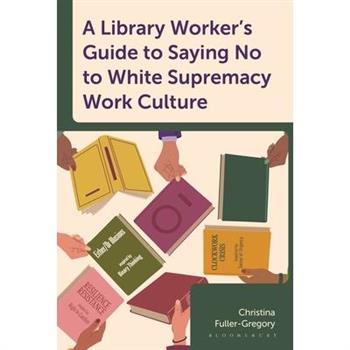

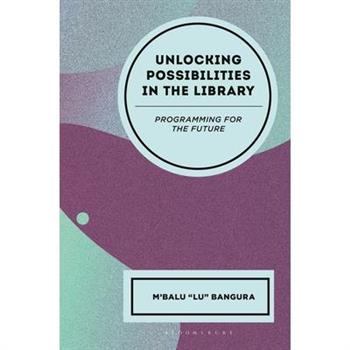
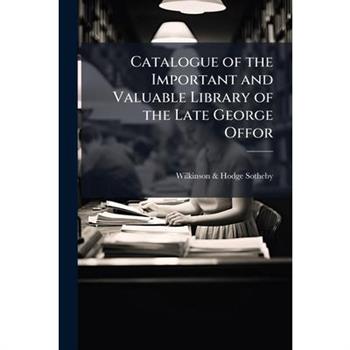
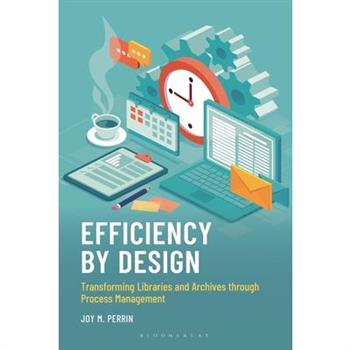
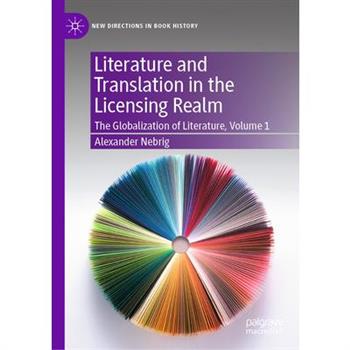

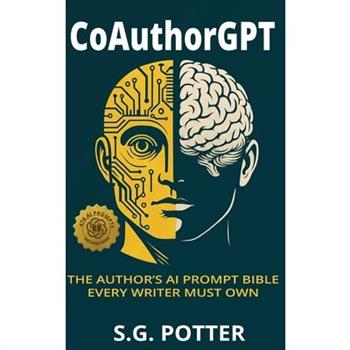

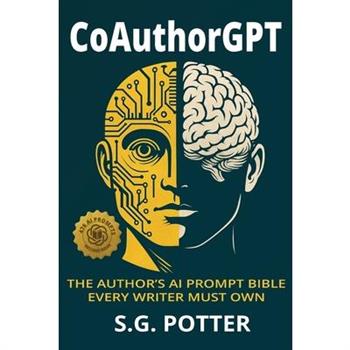
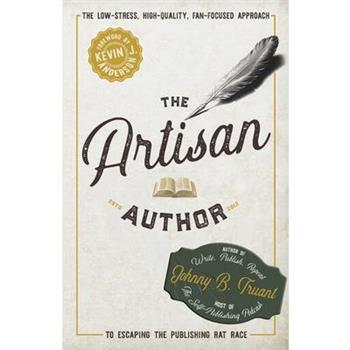
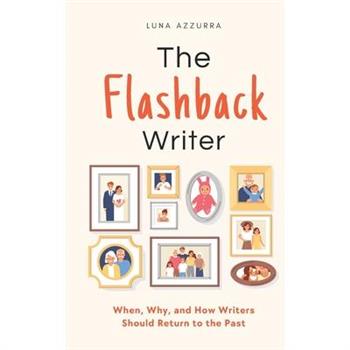
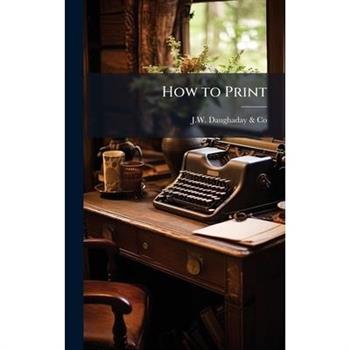
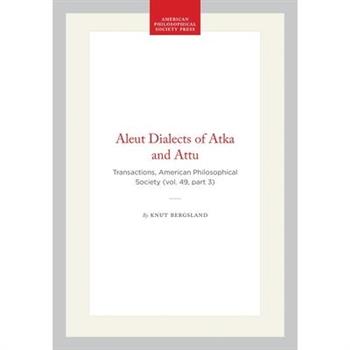
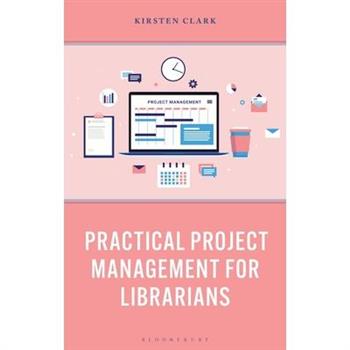
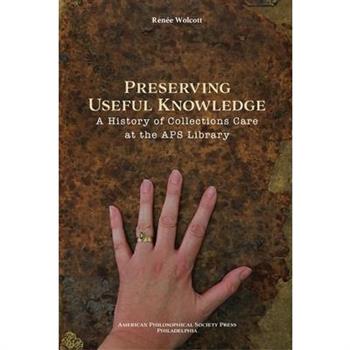
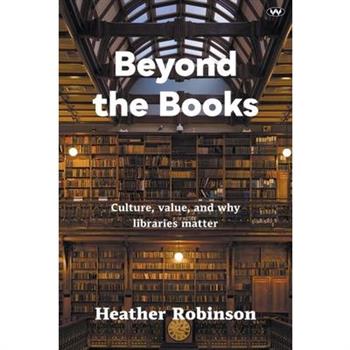
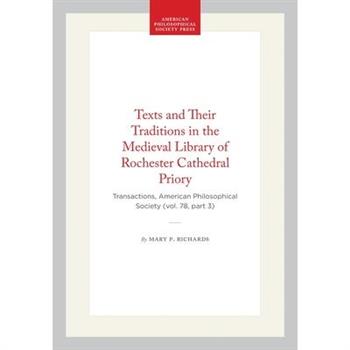

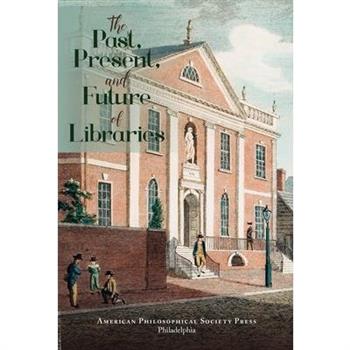
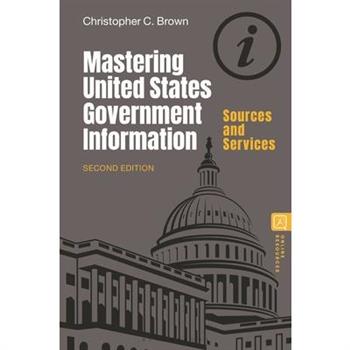
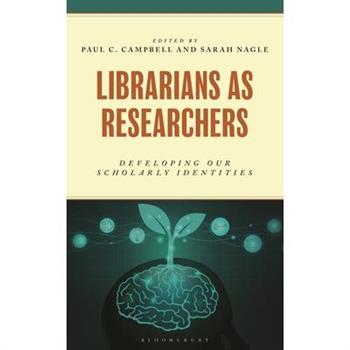
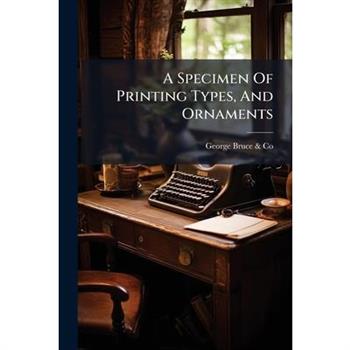
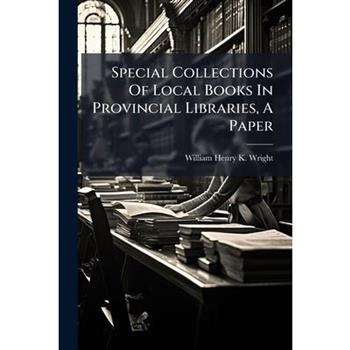
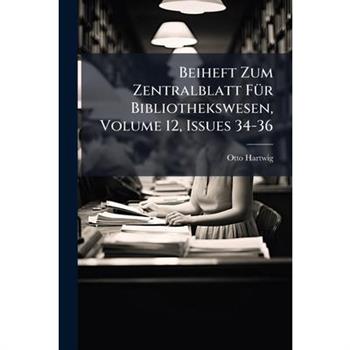
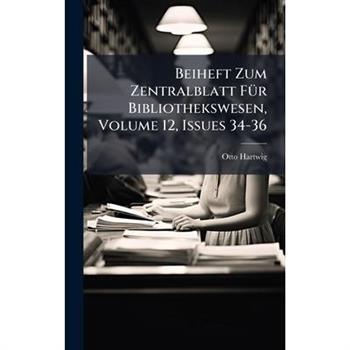
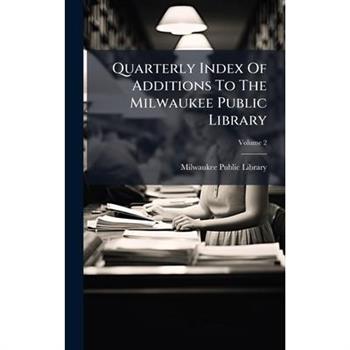
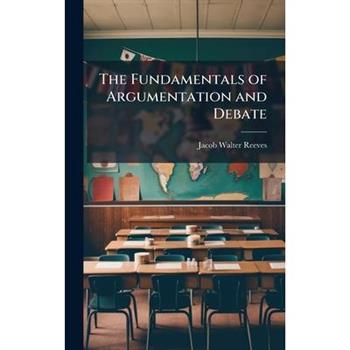
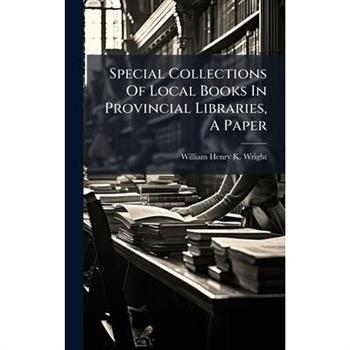
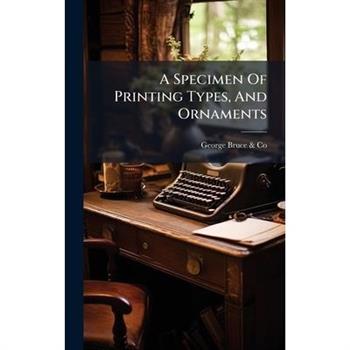
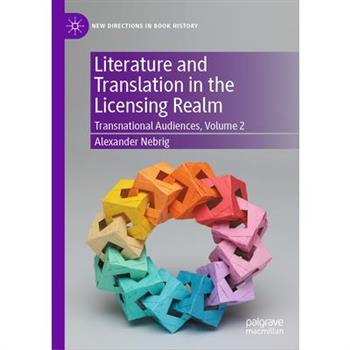
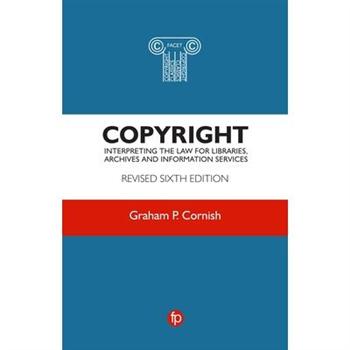
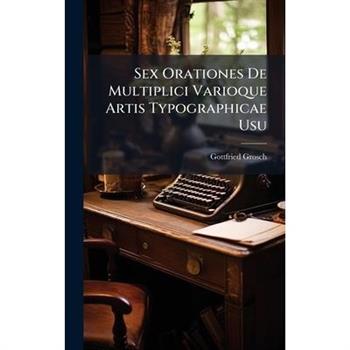
![The Free Libraries Of Scotland, By An Assistant Librarian [t. Mason] The Free Libraries Of Scotland, By An Assistant Librarian [t. Mason]](https://cdn.kingstone.com.tw/english/images/product/0597/9781024790597m.jpg?Q=07a9e)
![The Free Libraries Of Scotland, By An Assistant Librarian [t. Mason] The Free Libraries Of Scotland, By An Assistant Librarian [t. Mason]](https://cdn.kingstone.com.tw/english/images/product/3420/9781024793420m.jpg?Q=a7858)
